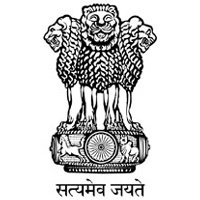With the government set to present its first full term budget by Saturday, the major task for the government would be to strike a balance between boosting growth and keeping fiscal balance.
While most analysts expect the government to achieve its fiscal deficit target for the current fiscal, credit rating agencies feel that it should revise the targets for next year and beyond, to make for a more robust growth story going forward.
As of now, the government expects to cut down its fiscal deficit target to 3.6 per cent next fiscal and reduce it further to 3 per cent for 2016-17.
"The Union Budget 2015-16 is expected to focus on maintaining fiscal prudence while also providing an enabling environment for growth," D R Dogra, MD & CEO, Care Ratings, said in a report on Budget expectations.
The government remains cautious on the fiscal deficit front, as if it is unable to achieve its targets it would not auger well with its bond ratings which are currently just a notch above the junk status.
Top rating agencies believe that the government might just be able to achieve its targets by rationalising subsidies and by introducing measures to supersize its divestment programme.
Dogra talks about the Make in India campaign and points out that the thrust of the Budget will be on infrastructure by way of an increase in government’s own capital expenditure along with measures to increase private participation. In order to meet the infrastructure needs, increased participation of corporate and municipals in the bond markets would be encouraged. Further, the savings made on the subsidy bill would be directed towards the development of infrastructure for industries.
CARE ratings estimates that the government would look to divest assets worth around Rs 60,000-65,000 crore or around $10 billion in the coming year and that the gross fiscal deficit is seen to be retained at the existing level in absolute numbers at around Rs 5.2 lakh crore on the back of effective expenditure and lower subsidies.
The report mentions a cutback in the food subsidy bill and the MGNREGA programme thereby saving around Rs 20,000 crore, which the rating agency expects would be invested in the infrastructure.
Moody's-controlled ICRA also expects the government to abide by the fiscal deficit target.
In a report co-authored by Anjan Deb Ghosh, executive vice president and CRO, ICRA and Aditi Nayar economist, ICRA, expects sectors such as roads, railways, housing and urban development to receive substantial budgetary funding.
The authors also expect higher public expenditure on big-ticket and longer gestation projects such as ports, high speed railway, smart cities, etc, through innovative financial means that do not affect the government’s fiscal balance, such as sovereign-supported bonds and other non-budgetary channels.
They believe that budget would focus on plugging leakages and better targeting of subsidies, particularly through widening direct transfer of benefits to the intended beneficiaries, a trend that has already gained momentum with the government’s ambitious Jan Dhan Yojana.
ICRA report also said that the Budget is expected to provide a roadmap for recapitalisation of PSU banks besides measures to enhance access to long-term debt, in the form of strengthening bond markets, infrastructure debt funds, Infrastructure Investment Trusts (InvITs) as well as easing the tax rules to make it more attractive for the functioning of Real Estate Investments Trusts (REITs).
D K Joshi, chief economist at S&P- controlled CRISIL, believes that the major thrust for reducing the fiscal deficit would have to come from rationalising the subsidies.
"The government needs to switch expenditures from subsidies towards productive spending/investments. Lower oil prices will help rein in the fuel subsidy, but the government will have to take focused measures to better target and reduce the food subsidy burden," he said.
DBT (Direct Benefit Transfers) might be the game changer for the food subsidies, Joshi believes.
He said, "The money that the households receive from the cash transfer would raise the discretionary spending of these households, and provide a consumption boost to the economy. By allowing households to improve their nutritional intake and spend more on health and education, the DBT will play a vital role in social welfare."
Though the government has to do much on the infrastructure side to boost investment in the country, a lot depends on how it rationalises its subsidy programmes without drawing ire from the poorest sections of the society. The rating agencies expect a tough road ahead of the government as it balances the fiscal targets and growth prospects.
One thing which is going for the government is that not too many state elections are due this year and that provides a headroom for taking more reformist measures without worrying too much about political repercussions.
(Edited by Joby Puthuparampil Johnson)





